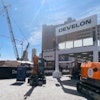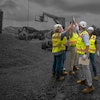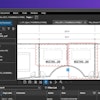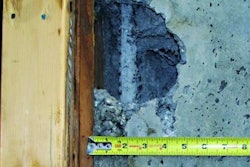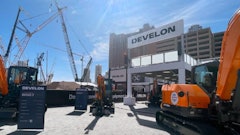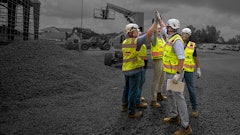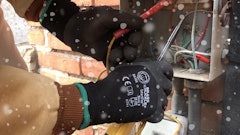Reflecting the weak overall economic recovery, private nonresidential construction spending increased 0.5% in April, according to the June 1 report by the U.S. Census Bureau. Year-over-year, private nonresidential construction spending is down 8.5%. Total nonresidential construction spending – which includes both privately and publicly financed construction – was $524.1 billion in April, down 0.8% for the month and down 8% from the same time last year.
Three of the 16 nonresidential construction subsectors showed increased spending for the month including:
- Communication +4.5%
- Power +2.5%
- Health Care +1.7%
Four other subsectors were up from April 2010, including:
- Conservation and Development +4.6%
- Power +2.4%
- Health Car +2.4%
- Communication +0.2%
In contrast, thirteen subsectors posted decreases in spending for the month including:
- Lodging -4.9%
- Transportation -4.5%
- Amusement and Recreation -3.5%
- Religious -2.8%
- Sewage and Waste Disposal -2.6%
Twelve subsectors experienced a reduction in construction spending from the same time last year, including:
- Lodging -29.8%
- Manufacturing -26.7%
- Religious -18.5%
- Public Safety -15.9%
- Office -12.5%
- Transportation -11.9%
Public nonresidential construction spending dropped 2% for the month, and is down 7.5% from the same time last year. Residential construction spending rose 3.2% in April, but is down 12% over the last twelve months.
Total construction spending – which includes both nonresidential and residential construction – was up 0.4% for the month, but is still down 9.3% from April 2010.
ABC Analysis
"The rotation toward a privately financed construction recovery continues," said Associated Builders and Contractors (ABC) Chief Economist Anirban Basu. "April represented the third consecutive month during which privately financed construction activity rose while publicly financed activity declined.
"The improvement in privately financed activity largely reflects a major shift in the U.S. economy," said Basu. "The three construction segments that experienced growth on a monthly basis were communication, which is driven largely by the massive demand for bandwidth and storage capacity; power, which is motivated by high-energy prices and a desire to increase domestic production; and healthcare, which is experiencing growth largely due to demographic and technological factors.
"However, cyclical private segments have not been able to recover in earnest. Both commercial and office-related construction spending were down for the month, a reflection of a still weak overall economic recovery and excess capacity in many real estate segments," Basu said.
"While it is true that the pace of economic recovery has slowed significantly, it appears that much of this is due to temporary factors such as rising food and gasoline prices. However, if those factors turn out to be permanent rather than temporary, the economic recovery will continue to stall, darkening what has been a benign outlook for 2012," said Basu.
See the Associated Builders and Contractors' previous construction-spending report.
